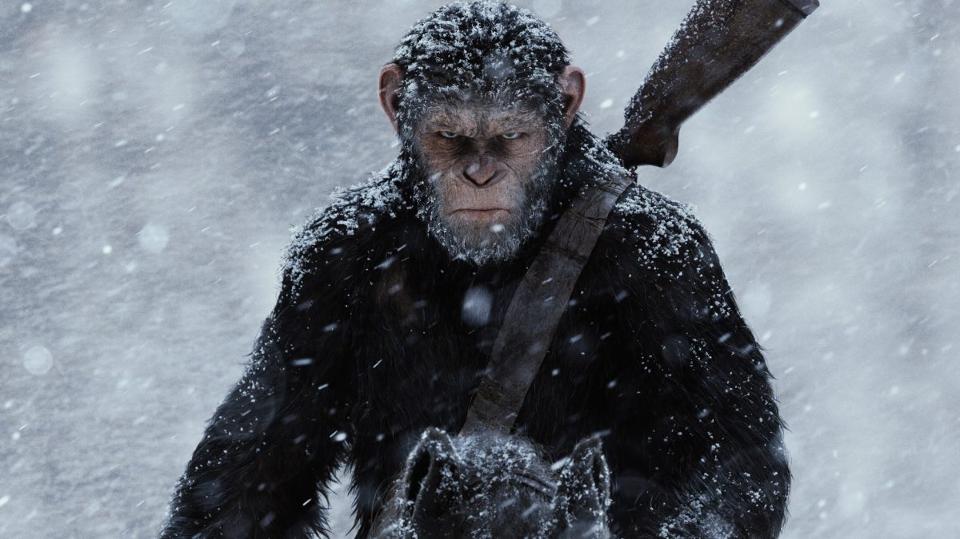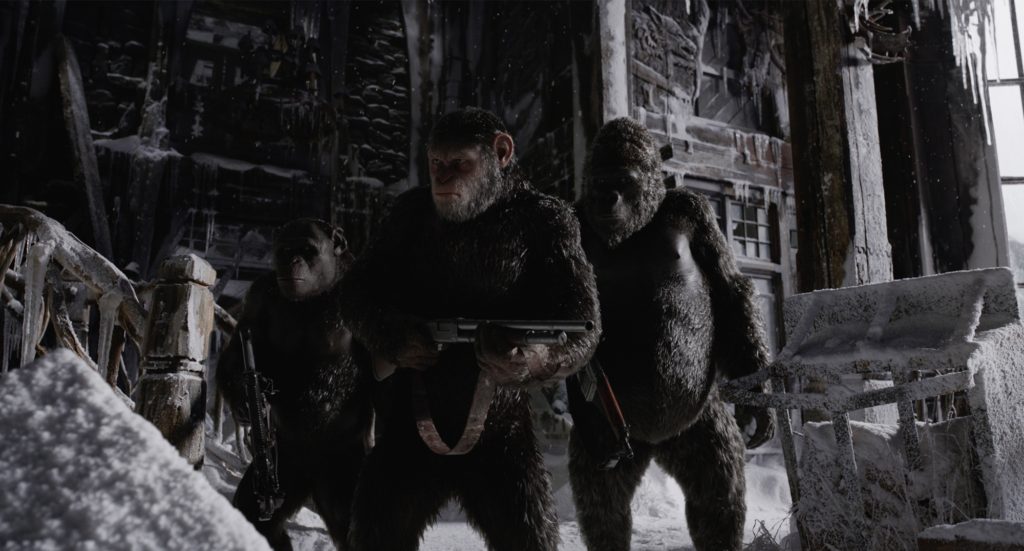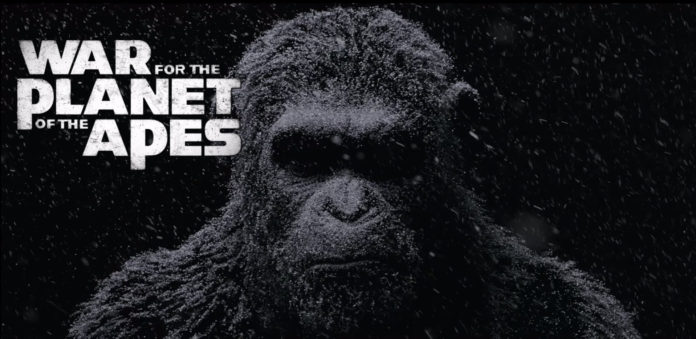The rebooted Planet of the Apes series had a lot of difficult tasks ahead of it when it was first conceived. It had to distance itself from the fairly terrible 2001 reboot by Tim Burton and stand out from the immensely popular original series from the late 1960s, and it had to produce a story that resonated with modern times.
With the release of 2011’s “Rise of the Planet of the Apes,” then director Rupert Wyatt gave the pretext and foundation for a new and unique take on the Apes franchise. Director Matt Reeves took over directing duties for 2014’s “Dawn of the Planet of the Apes” and produced one of the best action/science fiction films of the last decade.
And with the release of this year’s “War for the Planet of the Apes,” returning director Matt Reeves was tasked with another difficult hurdle: sticking the landing on the third film in a good trilogy. Rising up to the challenge, Matt Reeves delivers a film with amazing visual effects, story and character work, thus making this iteration of the Planet of the Apes the best film trilogy since “The Lord of the Rings.”
“War for the Planet of the Apes” picks up a few years after the events of the last film, with the leader of the apes, Caesar (Andy Serkis), still trying to strike peace among apes and humankind. After being attacked by a group of former American military personnel that decimated the ape’s home, Caesar decides to take the fight to the leader of the military squadron, Colonel McCullough (Woody Harrelson).

One of the first points I want to address is that a lot of the plot points of this film can be considered spoilers. The marketing campaign did a fairly fantastic job of keeping much of the film hidden because most of the sequences seen in the film trailers occur within the first act of the film. This makes discussing story elements of the film particularly tricky.
What I will say about the story is that it doesn’t necessarily match the title of the film. If you’re expecting an all-out war between apes and humans, you should curb your expectations. The previous film, “Dawn of the Planet of the Apes,” had more large-scale action set pieces. But that really doesn’t hamper this film. “War for the Planet of the Apes” is more of a study of character, morality and survival.
It has its share of action set pieces, but with its smaller $150 million budget, this film purposefully limits the amount of action on screen in order to tell a story that is more meaningful and thoughtful than most would expect when going to see a summer blockbuster. The themes of association, belonging and parenthood are nuanced and pervasive, and they are the true backbone of the film.
“War for the Planet of the Apes” features its fair share of heartbreaking moments that resonate more than its brilliantly constructed action scenes. The two previous films have spent so much time building the world these apes live in that in this film we really get the opportunity to understand the apes who occupy it.

The focus of the series has always been on Caesar, and that character work has always been fantastic, but getting to know other apes, such as Maurice (Karin Konoval) and Rocket (Terry Notary), in a more defined space gave this film something the previous two films didn’t have: a sense of an ape world that extends beyond a main character.
The detail and attention given to other apes in “War for the Planet of the Apes” helps the audience better understand the stakes involved for them and really make the apes feel like primary characters in their own franchise.
The performances from the actors and actresses portraying the apes were nothing short of great. Andy Serkis puts on an award worthy performance as Caesar. I don’t think it’s a performance that should or could win an Academy Award, but it is a performance that should warrant consideration for a nomination.
A stigma exists about motion-capture performances and how they aren’t “real” performances, but Serkis has consistently torn holes in that theory, and his performance in this film might be his best yet. His range in this film is about as wide as you can get, and he truly makes you feel for a computer generated ape.
Steve Zahn comes into this franchise playing a new character called Bad Ape. His comedic timing is impressive, and gives the film it’s only bit of comedy. That said, Zahn plays Bad Ape with a lingering seriousness that feels appropriate to the script. Bad Ape isn’t funny just to be funny. He’s a funny character that still understands the stakes involved.
Woody Harrelson is also in top form as Colonel McCullough. I can’t go into much detail about his character, but he is multi-dimensional, terrifying, imposing and at times sympathetic. He embodies everything that makes a great villain.

The cinematography in “War for the Planet of the Apes” is top tier. Many frames in the film feel like they could be art pieces. The construction of the scenes is fairly mind blowing. Whether it is the forest, snow-covered mountains or desert, every scene feels perfectly framed, and the expert editing in the film helped to make these scenes pop even more.
The real standout for this film is undeniably the visual effects. The apes always look like real apes. The VFX team deserves an Academy Award nomination, and probably a win, for their work on “War for the Planet of the Apes.” The detail was so expertly crafted that the skin on the apes looked as real as it possibly could. There was no issue with the “Uncanny Valley” in terms of the apes’ faces. All of the facial movements felt authentic, and I can’t believe how well the VFX has progressed since the first film, which was already ahead of its time.
As for negatives, the pacing of the film is a bit off at times. It slows down at times where it shouldn’t, and the second act does feel like it drags just a bit. A couple of scenes felt a bit out of place at times. Not that they shouldn’t be in the film, rather they should have maybe occurred a bit earlier in the film so that the emotional payoff would have been a bit more effective.
“War for the Planet of the Apes” is the next great film in a series of really good summer films. More than that, though, “War for the Planet of the Apes” is a beautiful film with some much appreciated unconventional beats that ultimately leads this trilogy of Apes films to be the best take on the Planet of the Apes franchise.
I give “War for the Planet of the Apes” 9.25 / 10.

















